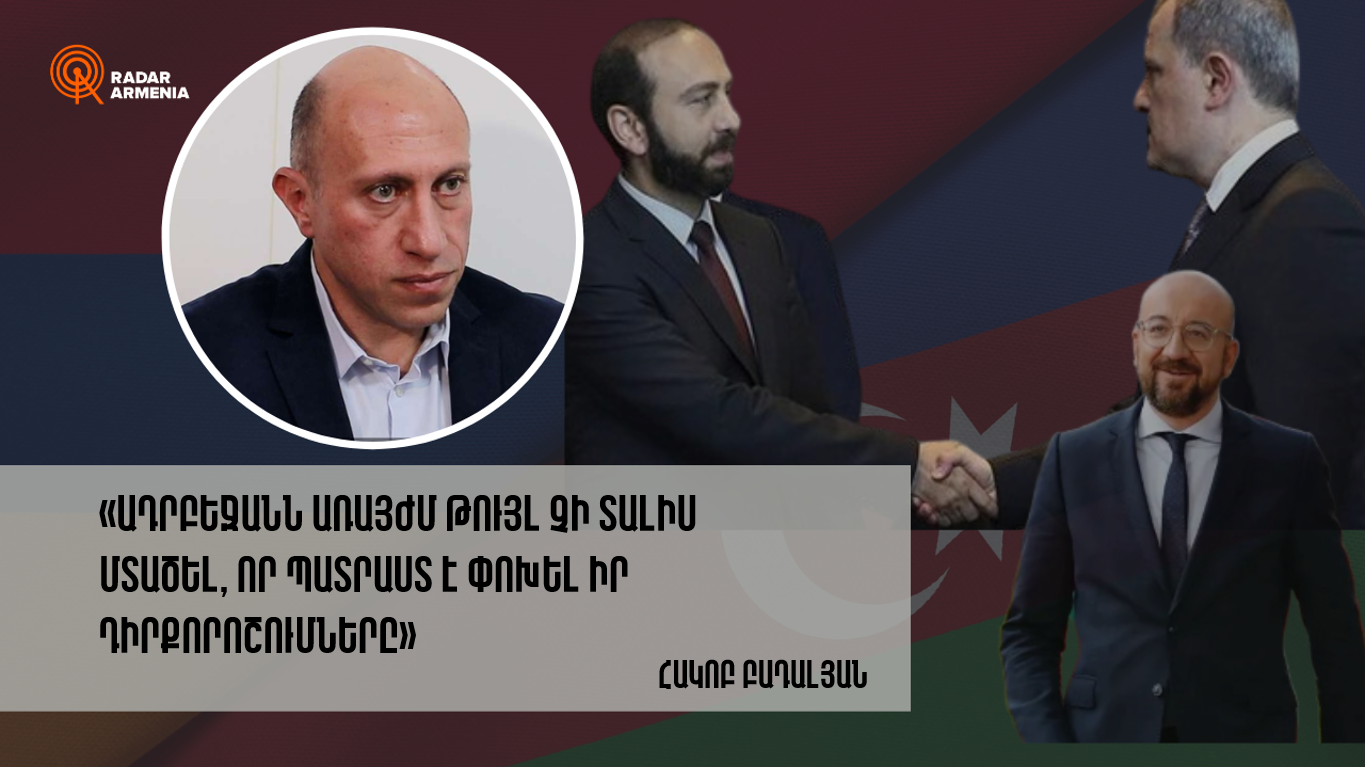Radar Armenia's interlocutor is political analyst Hakob Badalyan.
- At the meeting of foreign ministers expected in Washington in January, to which Azerbaijan has consented, Armenia hopes to finalize the agreement's text. Will it be possible to conclude the long-awaited agreement after the finalization of the text?
- First of all, it is necessary to understand whether it will be possible to agree on the final form of the contract at the meeting in Washington. This is a question in itself, and after that only the expectation or the question regarding the possibility of signing the contract can arise. I consider the possibility of finalization to be unlikely, considering both the different approaches between the parties and the difference in the approaches and goals of the interested geopolitical power centers. I have had many occasions to say that this issue is in the vortex of geopolitics. The main thing here will be the balance of power between the centers and what kind of result will be recorded in terms of the confrontation between them. At least this is no less important than the rapprochement of the positions of Armenia and Azerbaijan. Unfortunately, from that point of view, today we do not have an environment that would allow us to talk about the possibility of a peace treaty with a truly substantive and, moreover, balanced content. Accordingly, I do not rule out that there may be some document on intentions or general principles, given that it is the third round of actual meetings in Washington, and it is possible that the United States would very much like to conclude with some document, even if it is a declarative statement—the third stage. But I consider the possibility of completing the final content of the contract and preparing the signature to be almost zero.
- In the context of the settlement of Armenian-Azerbaijani relations, Charles Michel stated that there is a debate about the specific ways to connect Nakhichevan to Azerbaijan, to make sure that they respect Armenia's sovereignty and legislation. Having the example of the forced displacement of Nagorno-Karabakh, will the West be consistent in ensuring that Azerbaijan respects the legislation and sovereignty of the Republic of Armenia?
- The West will act consistently on all those issues that derive from its interest and correspond to its goals. And from this point of view, it will also be consistent within the framework of that logic. The goals are formulated: the formation and control of roads from Central Asia to Turkey, and then to the West. In the end, this hot world order confrontation is also about it. In this context, the West will act according to what kind of beneficial agreements and arrangements will be reached. It should be noted here that the main problem is to build a barrier axis through the cooperation between Russia and Iran, so that these roads are not under their control, and at the same time, these roads are actually an obstacle to the cooperation between Russia and Iran. Of course, already in a much wider context arising from this cooperation: Middle Eastern region, Central Asian region, etc. In other words, this is the core of the confrontation and the main goals. Now, within the framework of these goals, what kind of political agreements will the West reach and with whom is a big question. And the attitude towards the mode of operation of those roads will be derived from those questions.
- Yesterday, RA Foreign Minister also said that the issue of withdrawing troops from the Armenian-Azerbaijani interstate border was discussed. Will Azerbaijan agree and accept that it has invaded the sovereign territory of Armenia and withdraw its troops?
- Official Yerevan voiced the idea of this mirror withdrawal back in 2021. since May, when Azerbaijan, without military operations, occupied the sovereign territories of Armenia. Until today, we have not seen any action indicating Azerbaijan's readiness to discuss and accept the idea of withdrawal, we have not heard any statement. On the contrary, we see what open ambitions Azerbaijan presents to Armenia in the sense of new territories. This is also evidenced by the fact that Azerbaijan allows reservations in the wording when talking about the border of Armenia. Very often, some officials of Azerbaijan or even official messages use the formulation "so-called Armenian-Azerbaijani border" or "so-called Armenia-Azerbaijan". And this allows us to talk about the fact that Baku, at least for now, is not only not ready to accept the idea of withdrawal, but also, on the contrary, has new ambitions to come forward. I do not rule out that Azerbaijan will try to make Yerevan's offer an object of expensive bargaining for itself. But in that case, of course, the question will arise as to how much these negotiations will benefit Armenia, and how much they will allow to solve the issue at the cost of not raising such more serious issues. Here I think that Azerbaijan does not allow to think that it is ready to change its positions.
Hayk Magoyan


















